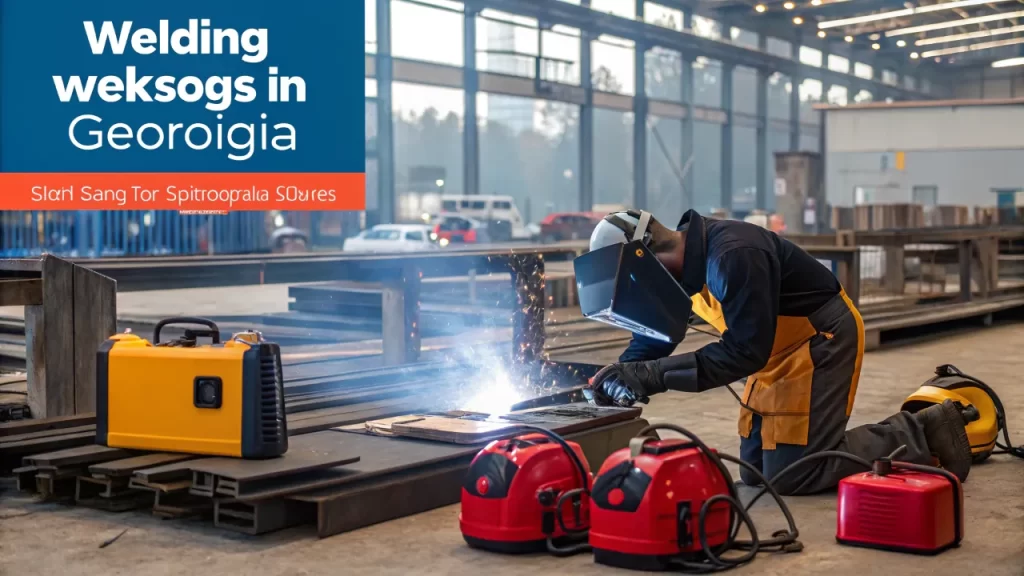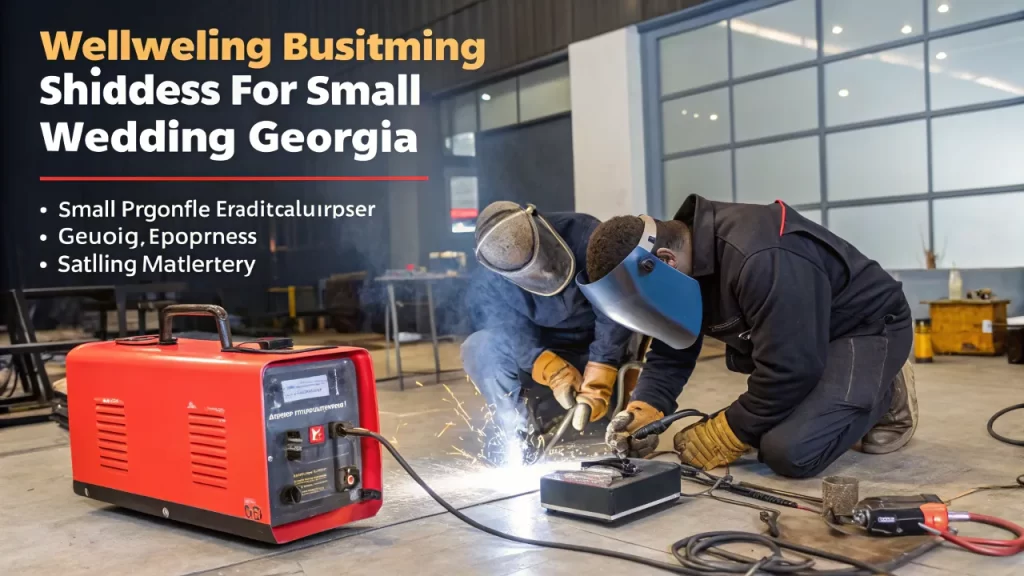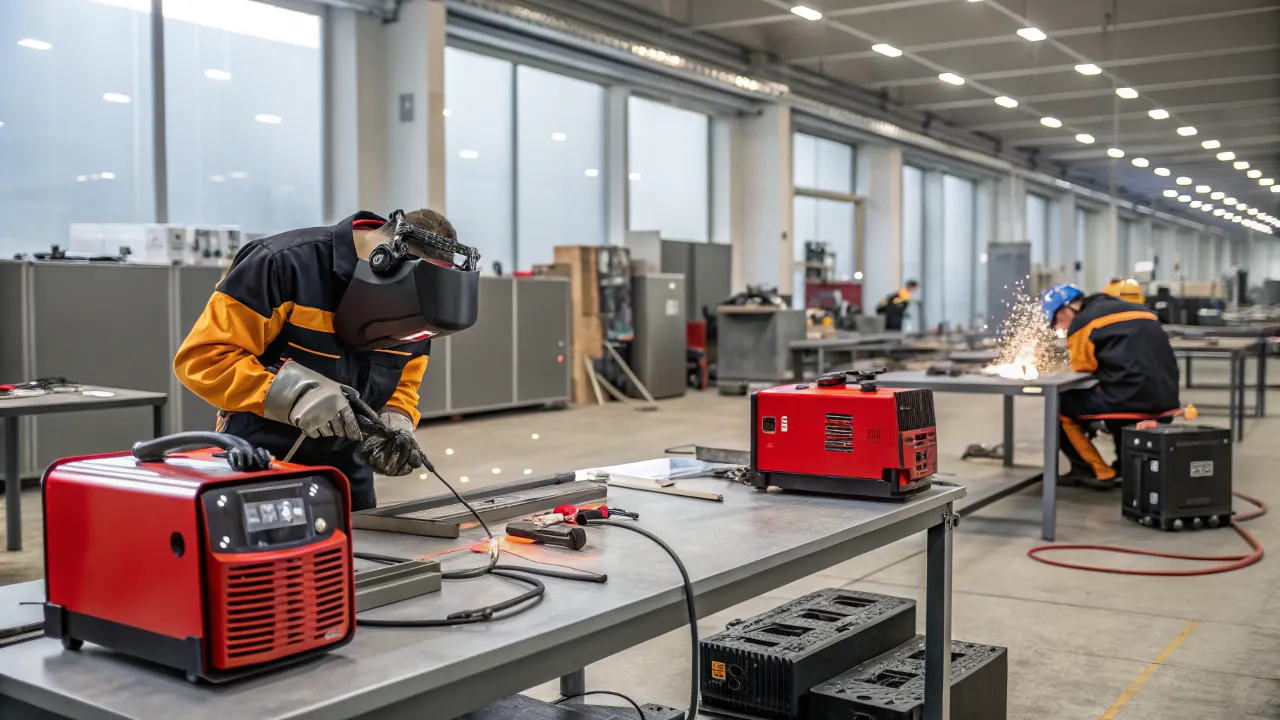Starting a Welding Business in Georgia: A Complete Guide
The welding industry in Georgia offers a solid foundation for entrepreneurs with specialized skills. What you need for a small welding business in georgia and With a thriving manufacturing sector and an expanding construction industry, there’s a consistent need for professional welding services. This guide will walk you through the essential steps to start your own welding business in Georgia, ensuring your path to success.
Essential Steps to Get Started
Skill Development:
- Master Your Craft: To succeed in welding, acquire strong technical skills through hands-on training.
- Formal Education: Consider enrolling in a respected technical college like Southern Crescent Technical College, Albany Technical College, or Augusta Technical College to gain valuable certifications and practical experience.
- Apprenticeships: Partnering with an experienced welder for an apprenticeship is a great way to gain real-world exposure to the trade and learn best practices.
- Ongoing Education: Keep up with the latest developments in welding methods, safety standards, and technologies through workshops, publications, and certifications (e.g., AWS).
Business Fundamentals:

- Create a Strong Business Plan: Your Roadmap to Success A well-thought-out business plan is essential to define your goals, target audience, services, marketing strategies, finances, and operations. Legal Structure: Select a legal structure (LLC, sole proprietorship, etc.) and consult a professional to ensure you understand its legal and tax implications.
- Get the Right Licenses and Permits: Register your business with the Georgia Secretary of State and apply for any local licenses or permits you need to operate legally.
For further reading: 7 Key Business Fundamentals Professionals Should Know
Building Your Business
Financing Your Venture:
- Estimate Startup Costs: Calculate expenses for equipment (welders, safety gear, grinders), workspace, marketing, and initial operating costs.
- Explore Financing Options: You can secure funding through small business loans (like SBA loans), grants, personal savings, or by seeking investments from family or friends.
Also Read: Williamson Inc Small Business Academy:Empowering Entrepreneurs
Investing in Equipment and Workspace:
- Quality Equipment: Invest in reliable welding equipment (MIG, TIG, stick) from trusted brands. If the budget is tight, consider buying used equipment in good condition.
- Find the Right Space: Whether renting a shop, setting up a mobile welding unit, or using a home-based space (subject to zoning laws), ensure your workspace complies with safety and local regulations.
Marketing and Growing Your Clientele:
- Develop Your Online Presence: Build a professional website and actively engage on social media platforms (Facebook, Instagram, LinkedIn) to showcase your work, attract new clients, and build brand recognition.
- Network and Build Relationships: Join industry groups, attend events, and network with professionals in construction and manufacturing to expand your business connections.
- Exceptional Service: Deliver top-notch service, meet deadlines, and go the extra mile to keep clients happy, fostering long-term relationships and repeat business.
Key Considerations for Your Welding Business

Safety First:
Always prioritize safety by following strict protocols—use the proper protective gear, ensure proper ventilation, and follow fire safety practices.
Insurance Coverage:
Get the necessary insurance to protect your business and employees, including general liability, workers’ compensation (if applicable), and property insurance.
Financial Management:
Keep accurate financial records, track income and expenses, and maintain a solid understanding of your business’s cash flow.
Continuous Improvement:

The welding field is always evolving. Continuous Improvement: The Key to Staying Ahead keep learning new techniques, technologies, and safety protocols, and continuously improve your skills and business operations.
Legal and Regulatory Compliance
Ensure your welding business follows all relevant local, state, and federal regulations. Stay updated on any changes in industry standards and laws. Consult an attorney or accountant for professional advice on legal and financial matters.
Starting a welding business requires determination, dedication, and a proactive mindset. By preparing properly, continually enhancing your skills, and delivering exceptional service, you’ll be well on your way to building a thriving welding business in Georgia.
Disclaimer: This content is intended for general informational purposes and should not be considered professional or financial advice.
Frequently Asked Questions (FAQs)
What kind of license is required in Georgia to begin a welding business?
Depending on your business model and location, you’ll need various licenses and permits.
Business License: Obtain one from your local municipality.
Welding Certifications: Make sure you and your team have the necessary certifications (e.g., AWS certifications).
Zoning Permits: If you plan to operate from home, ensure you meet zoning regulations.
For specific licensing information, contact your local government and regulatory bodies
What is the startup cost for a welding business?
Startup costs vary depending on the scale of your business. Still, you can expect to spend anywhere from a few thousand dollars for basic equipment and initial expenses to tens of thousands for a full-fledged operation.
What equipment is required to launch a welding company?
Essential equipment includes:
Welding machines (MIG, TIG, stick)
Safety gear (helmets, gloves, protective clothing)
Cutting torches, grinding wheels, and other necessary tools
Fire extinguishers, first aid kits, and other safety equipment
Which welding business ventures am I able to pursue?
Consider niche services like:
Specialized welding (e.g., stainless steel or underwater welding)
Mobile welding services for on-site repairs and fabrication
Artistic welding for sculptures and decorative work
Industrial welding for manufacturing and construction projects
How can I locate local welding companies?
Use online tools like Google Maps or Yelp to search for welding businesses in your local area.
For more details, visit [How to Start a Successful Business in 2025]
How Can I Launch a Business in Georgia Without Any Funds?
Starting a welding business with no capital can be challenging, but some options include:
Bartering: Exchange your welding skills for other services you need.
Bootstrapping: Begin small and reinvest profits to grow gradually.
Loans and Grants: Investigate local and state programs that support small businesses.
What is the ultimate welding project to embark on?
The “best” welding business for you depends on your skills, interests, and the local market. Consider:
Demand for certain services in your area.
Competition levels.
Your passion for the trade and desire for ongoing learning.




